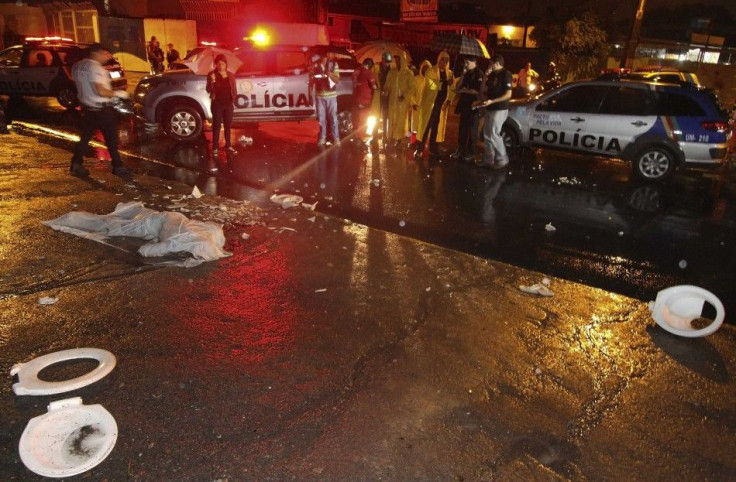Brazilian Soccer Fans Throw Toilet Bowls in Riot at a World Cup Games Stadium

In addition to the problem of unfinished football stadiums in Brazil for the country's hosting of the World Cup games in June, in the case of the stadium in Arruda, operators would need to replace missing toilet bowls.
There were actually toilet bowls in the stadium built for the 2014 FIFA World Cup Games but fans ripped some of them and threw the items at other fans, resulting in the death of one sports follower.
Police identified the victim as Paulo Ricardo Gomes da Silva who was hit by a toilet bowl. Da Silva was reportedly engaged in a quarrel with organised groups of opposing fans.
The match, which drew 8,000 viewers, was between the Santa Cruz and Parana teams. Following the riot, the Pernambuco Arena stadium was temporarily closed pending a further probe.
Besides da Silva, three other soccer fans were injured in the violence which Santa Cruz President Antonio Luiz Neto said the club tried to avoid by having the fans leave 15 minutes apart to minimise clashes.
It is not the first time that rowdy Brazilian fans caused a riot. In December, fans of Atletico Paranaense had an encounter against supporters of the visiting team which was captured by TV cameras showing one bloodied fan being kicked in the body and head.
The World Cups starts on June 12. Ahead of that date, Rio de Janeiro Mayor Eduardo Paes rolled out the city's operational plan for the sports event. Rio is one of 12 Brazilian cities that would host soccer matches. Rio is the host of seven games, including the final game on July 13 at the Maracana Stadium.
Rio is also the host of the World Cup media headquarters and interim FIFA head office and press centre.
With the sports event expected to draw about 600,000 tourists, Paes declared a three-day holiday during the match days at Maracana Stadium to reduce the number of cars on the road and ensure traffic would move.
The city built a rapid transit bus system for the World Cup to handle the volume of tourists, majority of whom are also expected to ride Rio's subway system.





















